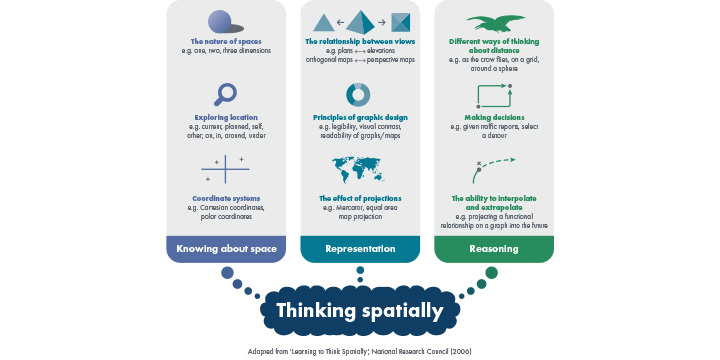30 January 2020

What does research suggest about early development of spatial skills?
- Students who have good early spatial skills are more likely to have success across mathematics and other subjects, for example, such skills may be linked to the development of a mental number line
- Spatial skills are important for mathematical reasoning and useful when finding strategies for solving more complex mathematical problems
- Spatial skills may be two or three dimensional and viewer- or object-centred and students should have more early experience of using spatial skills in each of these aspects
- Sex differences in spatial abilities may be linked to quantity of play with spatial toys including home puzzle play; it may be particularly beneficial to improve spatial skills for girls and other underrepresented groups
- It is possible to improve spatial skills with training; providing students with spatial scaffolding when learning a new concept may enrich their understanding
- More research is needed on spatial skills in the early years and more professional development is needed to ensure primary and early years teachers are confident in teaching them
View EspressoView in Norwegian